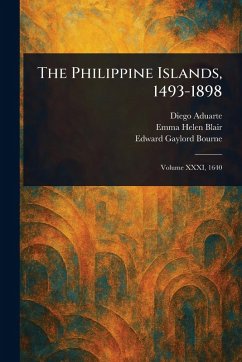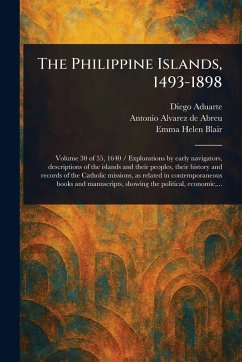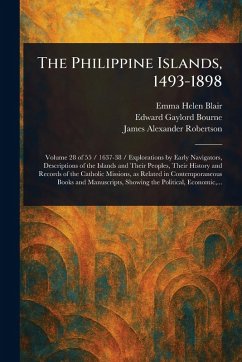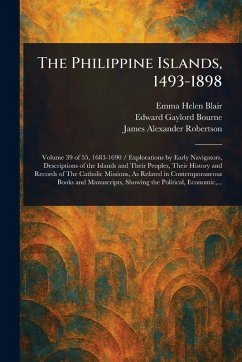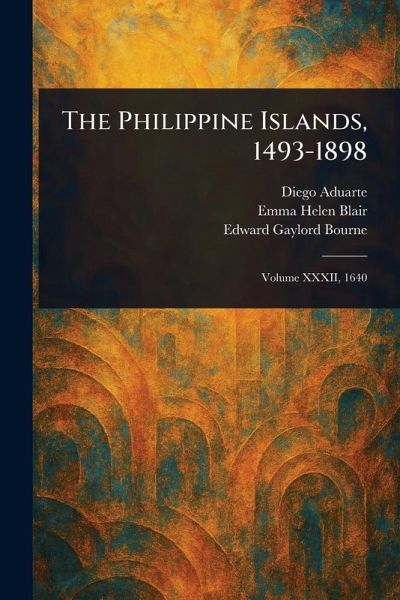
The Philippine Islands, 1493-1898
Versandkostenfrei!
Versandfertig in über 4 Wochen
14,99 €
inkl. MwSt.
Weitere Ausgaben:

PAYBACK Punkte
7 °P sammeln!
Journey back to the 17th-century Philippines with "The Philippine Islands, 1493-1898: Volume XXXII, 1640," a detailed historical account by Diego Aduarte. This volume offers a unique window into the Spanish colony, exploring the political, economic, commercial, and religious conditions of the islands during this transformative period. Delve into explorations by early navigators, vivid descriptions of the islands and their people, and invaluable records of the Catholic missions. Aduarte's work sheds light on the complex relationship between the Philippines and European nations, documenting the ...
Journey back to the 17th-century Philippines with "The Philippine Islands, 1493-1898: Volume XXXII, 1640," a detailed historical account by Diego Aduarte. This volume offers a unique window into the Spanish colony, exploring the political, economic, commercial, and religious conditions of the islands during this transformative period. Delve into explorations by early navigators, vivid descriptions of the islands and their people, and invaluable records of the Catholic missions. Aduarte's work sheds light on the complex relationship between the Philippines and European nations, documenting the profound impact of colonialism and the Catholic Church. Specifically, this volume examines the demarcation line of Alexander VI and its influence on the region. A vital resource for historians and anyone interested in Southeast Asia, Spanish colonialism, and the history of missions, "The Philippine Islands" provides unparalleled insight into a fascinating era. This meticulously prepared print edition ensures the accessibility of this important historical text. This work has been selected by scholars as being culturally important, and is part of the knowledge base of civilization as we know it. This work is in the public domain in the United States of America, and possibly other nations. Within the United States, you may freely copy and distribute this work, as no entity (individual or corporate) has a copyright on the body of the work. Scholars believe, and we concur, that this work is important enough to be preserved, reproduced, and made generally available to the public. We appreciate your support of the preservation process, and thank you for being an important part of keeping this knowledge alive and relevant.





